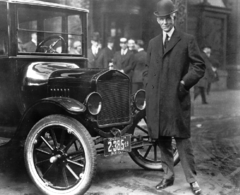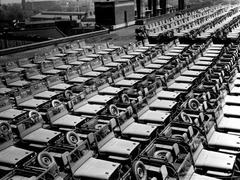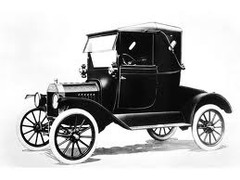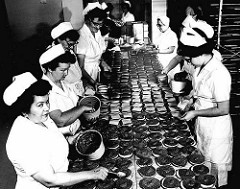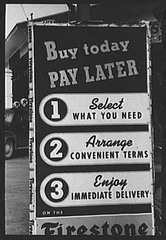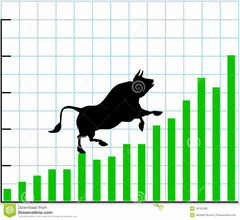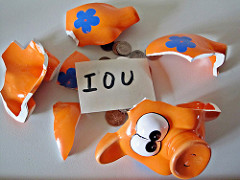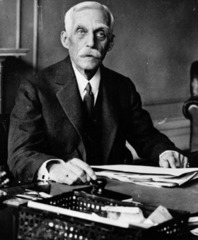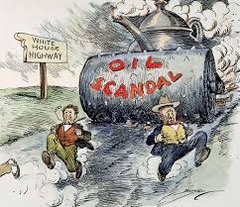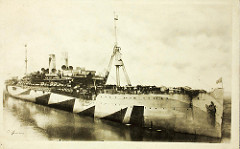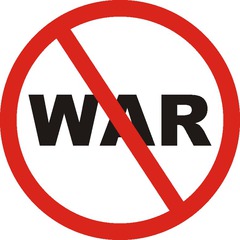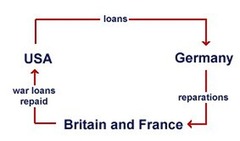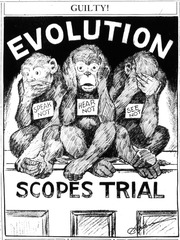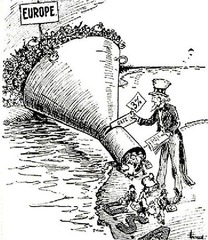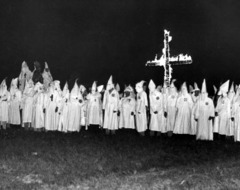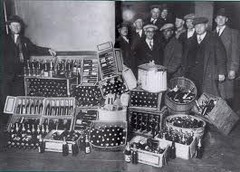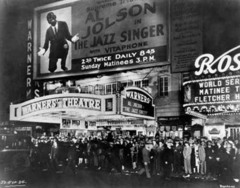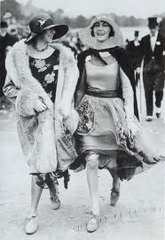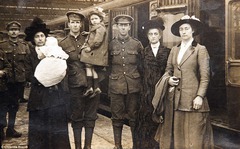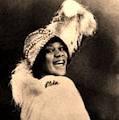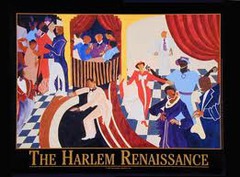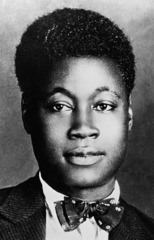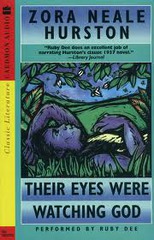Henry Ford
United States manufacturer of automobiles who pioneered mass production (1863-1947).
mass production
Process of making large quantities of a product quickly and cheaply
Model T
A cheap and simple car designed by Ford. It allowed for more Americans to own a car. $850.
scientific management
a management theory using efficiency experts to examine each work operations and find ways to minimize the time needed to complete it
assembly line
In a factory, an arrangement where a product is moved from worker to worker, with each person performing a single task in the making of the product.
consumer revolution
Time of prosperity, auto industry/ electrification, industrial boom, people buying consumer products because they could afford it
installment buying
A consumers buys products by promising to pay small, regular amounts over a period of time. (Buying on credit)
bull market
a steady rise in the stock market over a period of time
buying on margin
Purchasing stock with a little money down with the promise of paying the balance at sometime in the future
Andrew Mellon
Secretary of Treasury under President Harding, Coolidge and Hoover, who instituted a Republican policy of reduced government spending, lower taxes to the wealthy and higher tariffs
Herbert Hoover
Harding's Secretary of Commerce who worked with big business to achieve social goals. Later became 31st president and led America into the Great Depression.
Teapot Dome Scandal
Scandal during the Harding administration involving the granting of oil-drilling rights on government land in Wyoming in return for money (bribes/kickbacks)
Calvin Coolidge
Became president when Harding died of pneumonia. He was known for practicing a rigid economy in money and words, and acquired the name "Silent Cal" for being so soft-spoken. He was a true republican and industrialist. Believed in the government supporting big business.
Washington Naval Disarmament Conference
Raised hopes that nations could resolve disagreements without war (1921 & 1922)
Kellog-Briand Pact
Agreement signed in 1928 in which nations agreed not to pose the threat of war against one another
Dawes Plan
1924 Created by Charles Dawes, a banker-A plan to revive the German economy, the United States loans Germany money which then can pay reparations to England and France, who can then pay back their loans from the U.S. This circular flow of money was a success until the stock market crash of 1929.
modernism
a growing trend to emphasize science and secular values over traditional ideas about religion
fundamentalism
A religious belief characterized by a literal interpretation of the bible
Scopes Trial
1925, the trial that pitted the teaching of Darwin's theory of evolution against teaching Bible creationism
Clarence Darrow
Defended John Scopes during the Scopes Trial. He argued that evolution should be taught in schools.
quota system
An arrangement placing a limit on the number of immigrants from each country
Ku Klux Klan
Secret society that was reborn in 1915 to fight the perceived threats posed by African Americans, immigrants, radicals, feminists, Catholics, and Jews.
Prohibition
18th amendment: a total ban on the manufacture, sale, and transportation of liquor throughout the United States. 1919-1933
Volstead Act
Bill passed by Congress to enforce the language of the 18th Amendment. This bill made the manufacture and distribution of alcohol illegal within the borders of the United States.
bootlegger
someone who made or sold alcohol illegally during Prohibition
Charlie Chaplin
American silent movie comedian
The Jazz Singer
1927 - The first movie with sound; this "talkie" was about the life of famous jazz singer; Al Jolson.
Babe Ruth
"Home Run King" in baseball, provided an idol for young people and a figurehead for American sports
Charles Lindbergh
American pilot who made the first non-stop flight across the Atlantic Ocean (1927)
flapper
Young women of the 1920s that behaved and dressed in a radical fashion
Sigmund Freud
Austrian doctor that discovered the unconscious mind as a factor in human behavior
Lost Generation
Group of writers in 1920s who shared the belief that they were lost in a greedy, materialistic world that lacked moral values and often choose to flee to Europe
F. Scott Fitzgerald
Wrote The Great Gatsby ( a lost generation writer)
Ernest Hemingway
Lost Generation writer, spent much of his life in France, Spain, and Cuba during WWI, notable works include A Farewell to Arms, Old Man and the Sea
Marcus Garvey
African American leader durin the 1920s who founded the Universal Negro Improvement Association and advocated mass migration of African Americans back to Africa. Was deported to Jamaica in 1927.
A style of dance music popular in the 1920s
Louis Armstrong
Leading African American jazz trumpet player during the Harlem Renaissance
Bessie Smith
African American blues singer who played an important role in the Harlem Renaissance.
Harlem Renaissance
An African-American cultural movement of the 1920s and 1930s, centered in Harlem, that celebrated black traditions, the black voice, and black ways of life.
Claude McKay
A poet who was a major figure in the Harlem Renaissance movement and wrote the poem "If We Must Die" after the Chicago riot of 1919.
Langston Hughes
African American poet who described the rich culture of african American life using rhythms influenced by jazz music.
Zora Neale Hurston
American folklorist and author. She is best known for her 1937 novel Their Eyes Were Watching God.
